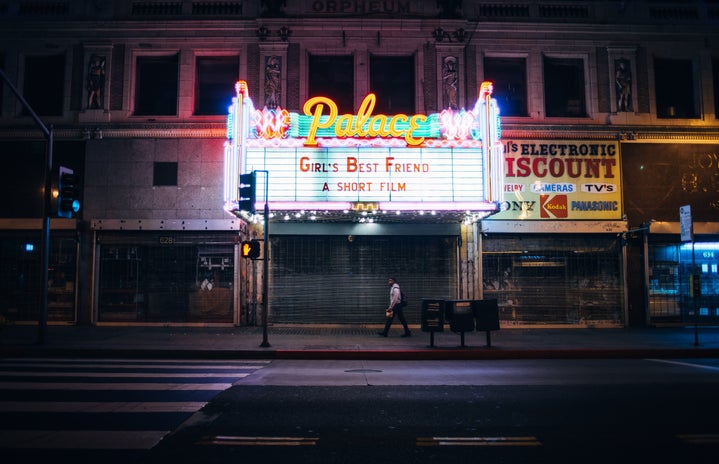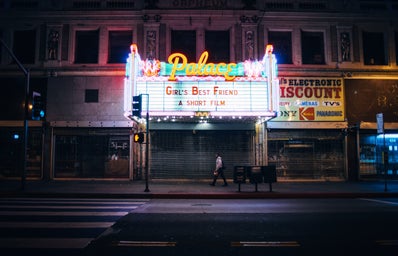Not all media is created equal. TV shows and movies have been stereotyping women for decades. While not always explicit or obvious, it can be noticed better when using measurements or representations like the Bechdel test. The Bechdel test, today, is defined by three guidelines in order to assess how women are portrayed in movies: first, there are two named women; second, two women talk to each other; and third, the women talk to each other about something other than a man. Of the 9,802 movies that have been tested this way, only 57% pass all three guidelines.
This disturbing result is why attention must be drawn to the women in media who are impactful, who are written as people and who live full lives on screen – and this is also why I decided to write this article. When reflecting on what choices I felt were best to emphasise for the purpose of the article, I quickly noticed something significant—the movies were directed and written by women, and all the TV shows were created by women. This was a complete coincidence, but not an insignificant one. A study from San Diego State University found that last year, 18% of directors and 19% of writers in the movie industry were women. Now, even though it’s February, I find myself creating a new resolution: find and consume media that is created by women and supports real women. Maybe this list of female characters written and directed by women can help you start working towards that goal too.
1. Erin Quinn (from Derry Girls, played by Saoirse-Monica Jackson) About Youth
The sitcom Derry Girls, created and written by Lisa McGee, follows a group of teen girls in the 1990s during the Troubles in Derry, Northern Ireland. Erin is a slightly vain but admirably ambitious girl who is friends with a familiar cast of characters—the misfit, the rebel, the studious one, and the peculiar one. Erin lives in Northern Ireland during ‘The Troubles’, and although there are occasional plot points centred around this contentious time, most of the show explores what it means to be young and not have an a clue – and how that is absolutely okay.
This show was especially poignant for me when I rewatched it during the pandemic. Erin’s day-to-day challenges taught me a lot about youth and women, and how no one completely understands what’s happening (even if it appears that way). Sometimes, no matter what crisis you’re in or no matter how hard you try, things are going to be awkward. That you can’t act like an adult because you’re not one, and you’re still getting the experience of one. But I think that’s something that Derry Girls proves to be beautiful about womanhood and youth. We will all experience many things, and we will experience them for the first time – and that’s okay. There will be growing pains, and maturing looks different for all women.
2. Mary Shelley (from Mary Shelley, played by Elle Fanning) About Pain
The movie Mary Shelley, written by Emma Jensen and directed by Haifaa al-Mansour, follows the slightly fictionalised life of author Mary Shelley in her early adulthood in the events that led up to her writing of Frankenstein. The movie is painful to watch. Mary suffers great losses in almost every category of her life, especially regarding family, and is forced to reconcile with the people she loves becoming unrecognisable. Her experience with such pain is eventually what inspires her to write a book so shocking to the publishers that they deny that such a topic is suitable for a female writer.
Mary, as a character and as a woman, taught me much about pain. She taught me that nothing is ever whole about pain—it never wholly leaves you, but it is also not your whole life. Mary’s pain came from the choices she made, and the only way she was able to move on from her pain was to make active choices on how she wished to deal with it and take control of her life. This movie also portrays the pain of uncontrollable sexism and the pain that comes from the choices women are forced to make under such circumstances, but somehow still shows viewers the genuine beauty and grace of a woman as well.
3. Jessica Day (from New Girl, played by Zooey Deschanel) About Authenticity
The one thing that carried my quarantine was New Girl, created by Elizabeth Meriwether. The show opens when Jessica “Jess” Day gets cheated on by her boyfriend and has to move out. She decides to follow up on a Craigslist ad to move into a loft with three men in Los Angeles. The show, which has now been running for seven seasons, follows the raggamuffin group through years of their 30s through all kinds of challenges and issues which ultimately bring them closer as friends. Jess is the definition of quirky and is a bit of a misfit in a loveable way. No matter the circumstance or relationship, she admirably and ultimately stays true to herself. She doesn’t apologise for who she is and what she believes and wants.
Jess taught me to take up space unapologetically. She was one of the first people I saw on TV who was acknowledged for being “different”—but not in a way that made her any less than her conventionally attractive and behaved friend, Cece. She is a great example of how there is not one type of woman and drives home that you don’t have to fit a mould of feminine behaviour or a feminine body. That just existing how you are will make you beautiful and lovable.
4. Frances Mayes (from Under the Tuscan Sun, played by Diane Lane) About Romance, Family and Success
In Under the Tuscan Sun (written and directed by Audrey Wells), Frances Mayes is a writer going through a bad marriage in modern-day San Francisco. Her friend convinces her to go on a trip to Tuscany, where a villa for sale catches her eye and she spontaneously purchases the property. From there, Frances sets out to heal the dilapidated villa with the help of a diverse but loveable cast of gentle characters.
For a movie advertised as a rom-com, it holds some fascinating lessons on romance. While Frances experiences multiple romantic relationships throughout the movie, she ultimately ends up happy (quick spoiler alert) on her own. Therefore, Under the Tuscan Sun was one of the first movies that showed me women actually don’t need a man to be happy and proved it to be the case. Frances made her life complete without a man—but not necessarily by herself. Although she desired to have a family of her own she came to redefine what family meant, from the nuclear model to one of the people of her choosing to surround herself and fill her new home with because they genuinely made her happy. This very explicit realisation also led the movie to redefine success as neither being a wife and mother, nor being an ultra-successful businesswoman, but simply as being successful in whatever your version of happiness and contentedness is.


